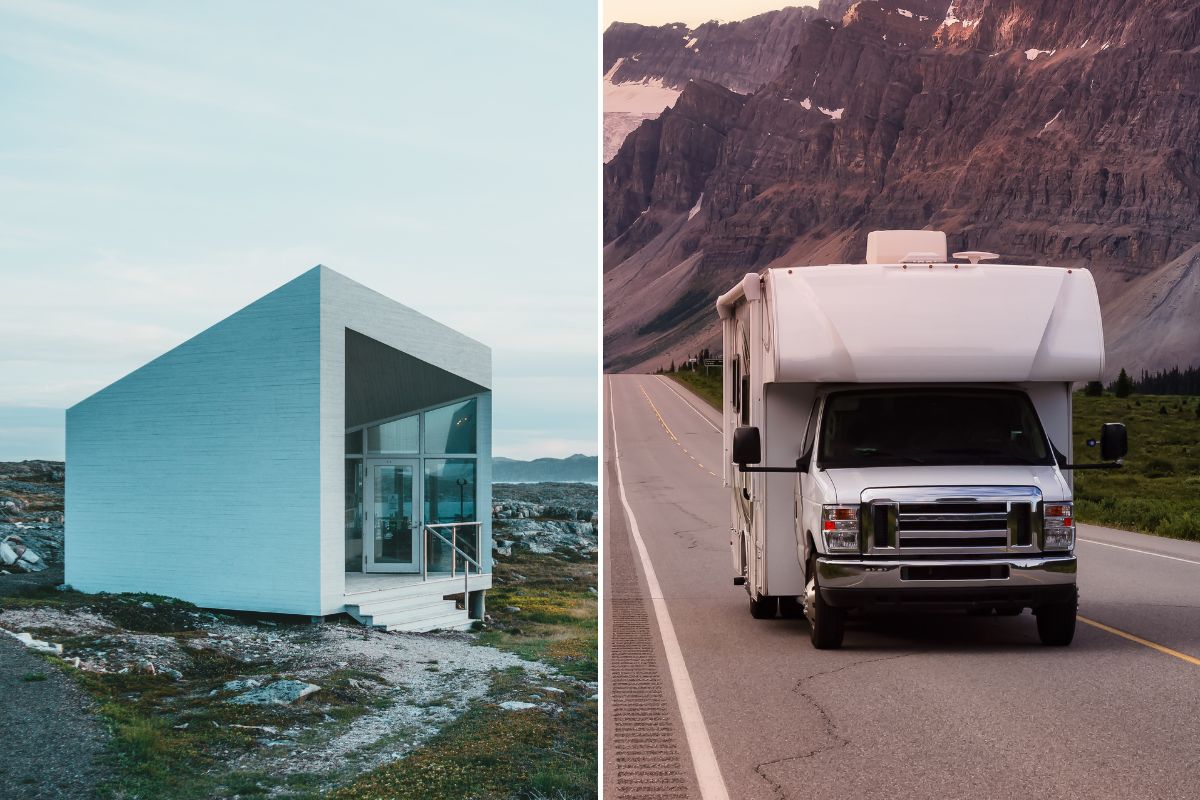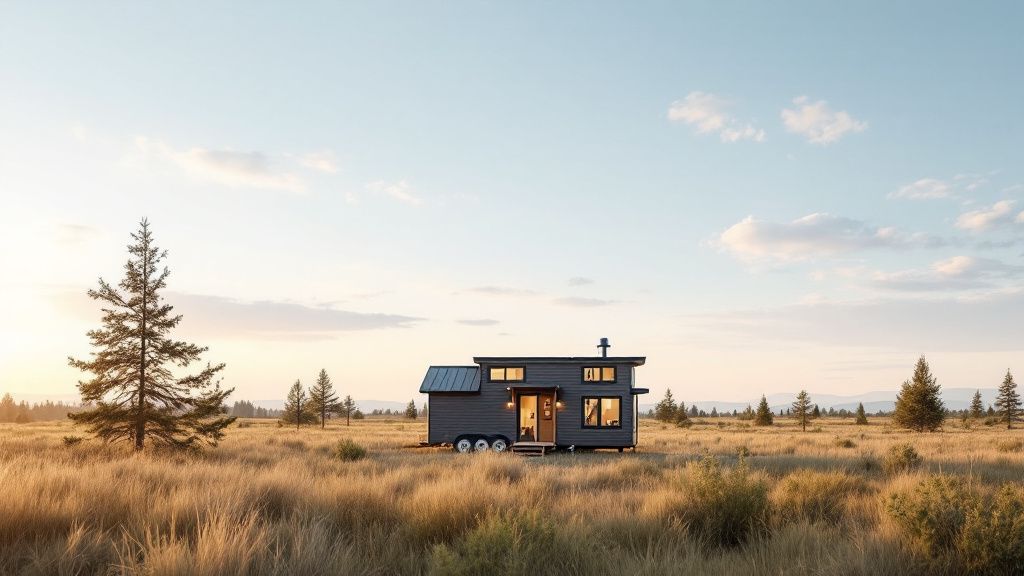Both options present a way to simplify and add excitement to your life, but which one is the right fit for you? In the following discussion, we'll dissect the pros and cons of tiny houses and RVs, providing you with the necessary insight to determine which path aligns best with your lifestyle and ambitions.
What is a Tiny House?
While you may have heard the term, you might still be wondering, 'What exactly is a tiny house?' Well, it's pretty much what it sounds like – a small, fully functioning home, typically ranging from 100 to 400 square feet. Unlike traditional homes, tiny houses can be portable, often built on trailers, making them a unique blend of home and vehicle.
Yet, don't be fooled by their size; tiny houses can be just as cozy and inviting as any conventional house. They're often meticulously designed to maximize every inch of space, boasting a kitchen, bathroom, and sleeping area. And, they're customizable to your taste, from the materials used to the design style.
If you're thinking of downsizing or simply craving a simpler lifestyle, a tiny house may be a fantastic choice. It's a chance to live more with less, removing unnecessary clutter and focusing on what truly matters. So, if you value a minimalist lifestyle, financial freedom, and the ability to travel with your home, a tiny house may be your perfect match.
Advantages of a Tiny House
Diving into the world of tiny houses, you'll uncover a wealth of benefits that might just convince you to adopt this minimalist lifestyle. Unlike an RV, tiny houses are designed with durability and insulation similar to traditional homes, providing you with more comfort all year round. They're built to endure, using high-quality materials that can stand the test of time.
Tiny houses also offer a level of customization that's unmatched by most RVs. You can design a space that truly reflects your style and needs, creating a home that's uniquely yours. The aesthetics of tiny houses often resemble traditional homes, giving you a cozy, homey feel that can be lacking in RVs.
In addition, tiny houses can be built on a fixed site, meaning you don't need to worry about the constant upkeep associated with a moving vehicle. The stationary nature of tiny houses also allows for the possibility of a small garden or outdoor space.
.jpg)
What is an RV?
Now, let's turn our attention to the RV, or Recreational Vehicle, a versatile choice for those who value mobility and travel convenience. An RV is a motorized or towable vehicle that includes living quarters designed for accommodation. They can range in size, from compact campers to expansive motorhomes.
You might be wondering, 'What makes an RV unique?' Well, an RV is designed with travel in mind. They're crafted from lightweight materials to guarantee they're road-ready and easy to maneuver. In fact, RVs can be driven or towed over various types of terrain.
One key attribute of an RV is its livability. Inside, you'll find all the comforts of home, including a sleeping area, kitchen, bathroom, and often, a living room. Some larger models even feature slide-outs, which expand the interior space when the vehicle is parked.
Regarding regulations, RVs must meet certain safety standards and weight ratings set by the Department of Transportation and National Highway Traffic Safety Administration. So, while they offer freedom and flexibility, they also provide a safe and regulated living environment.
Advantages of an RV
After exploring the basics of what an RV is, let's explore the numerous advantages that come with choosing an RV for your living or traveling needs. Imagine the freedom of hitting the road whenever you want, heading out to discover new places. This mobility is one of the main benefits of an RV. You're not tied to one location, giving you the flexibility to travel and explore at will.
An RV is also typically easier to insure and register than a tiny house, which can simplify your life. Plus, with an RV, you don't have to follow building codes like you would with a tiny house, providing you with more freedom the design and layout.
Living space, RVs often provide more room than tiny houses. This is especially beneficial for families or larger groups. Further, RVs come a variety of sizes and styles, so you can choose the one that best fits your needs and lifestyle.
Tiny House vs RV: Which is Better For You?
Weighing the pros and cons of tiny houses versus RVs can help you make an informed decision that aligns with your lifestyle, travel preferences, and budgetary needs. If you're seeking a stationary living space with better insulation and a touch of traditional home vibes, a tiny house might tick all the boxes. They offer customization options, allowing you to create a home that perfectly suits your needs.
Yet, if the thrill of travel is what you're after, an RV may be your go-to. Constructed with lightweight materials, RVs are mobile and designed for regular travel. They don't require adherence to building codes like tiny houses, and their insurance and registration processes are simpler. RVs can offer more living space, making them a suitable choice for families or larger groups.
The cost of maintaining and renovating an RV is usually more budget-friendly than a tiny house. But remember, the choice ultimately depends on your individual needs and preferences. Whether you opt for a tiny house or an RV, you'll be starting on a unique journey towards minimalistic living.
Conclusion
So, is a tiny house or an RV for you? It's all about personal choice. If sustainability, customization, and community appeal to you, a tiny house may be your answer. But if mobility, convenience, and lower initial costs are your priorities, an RV could be the way to go. Weigh the pros and cons, consider your lifestyle, and make the choice that feels right. The beauty of downsizing is that it's all about living your best life.






Share: